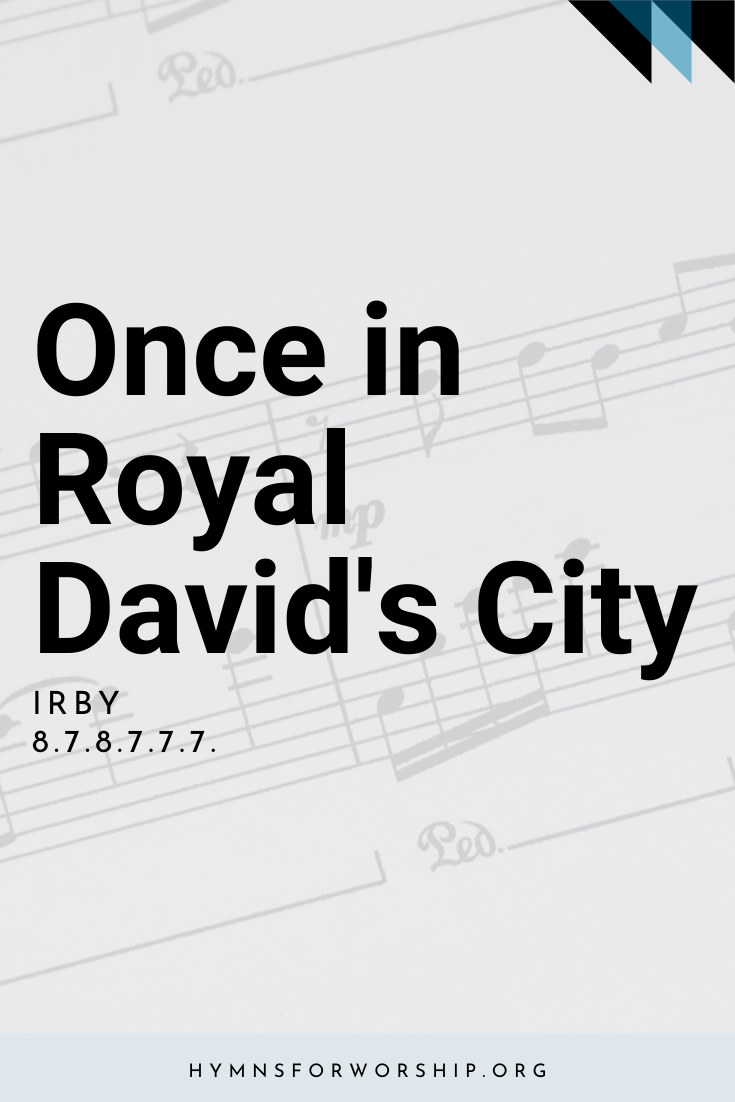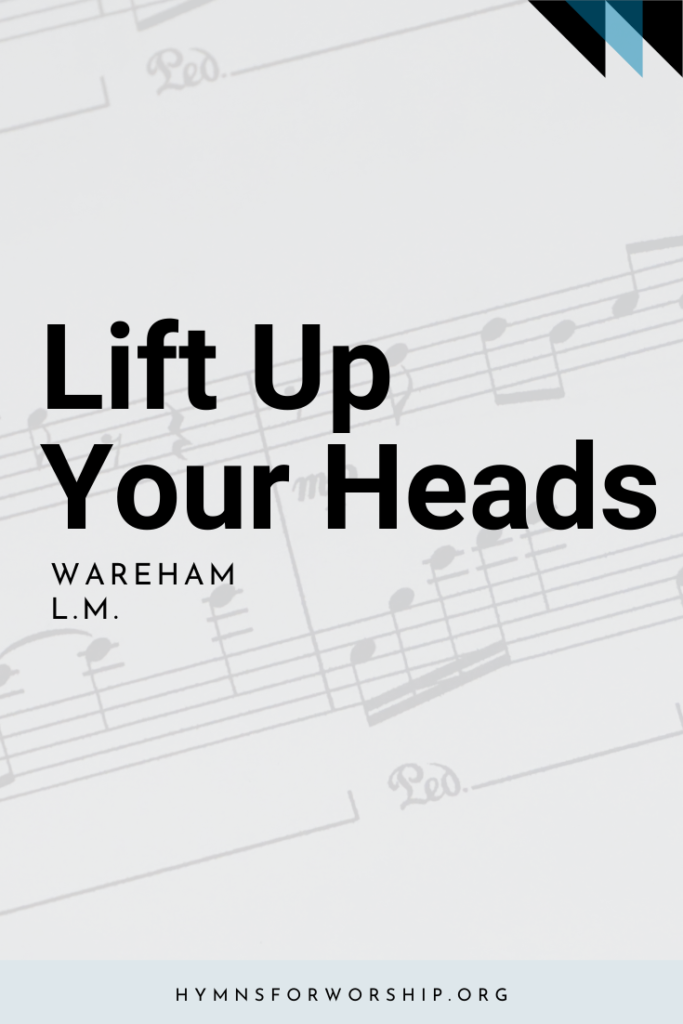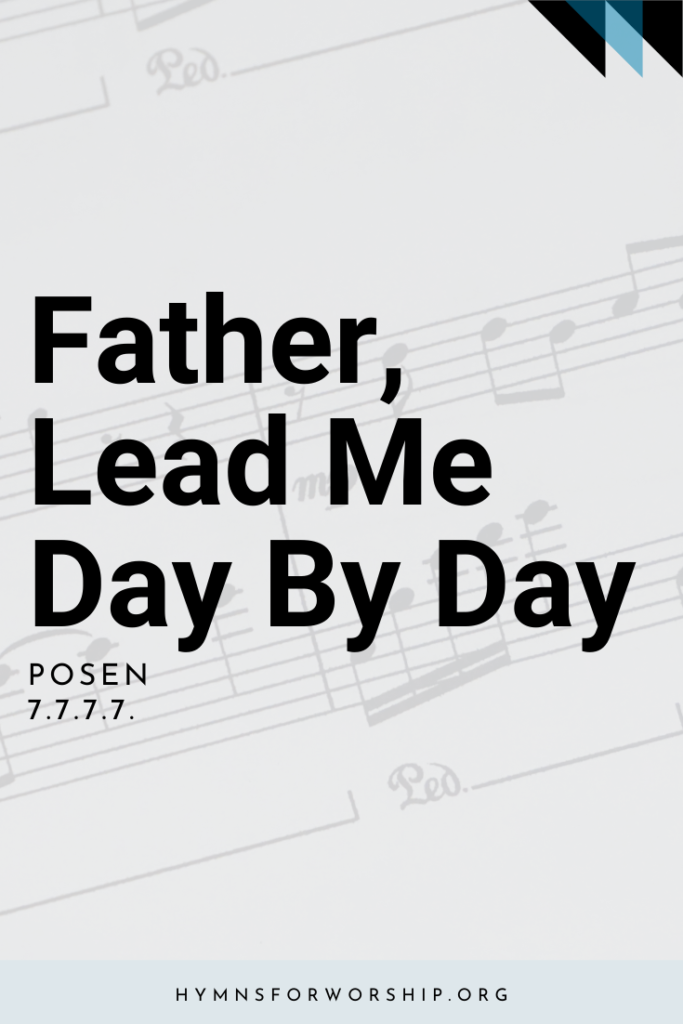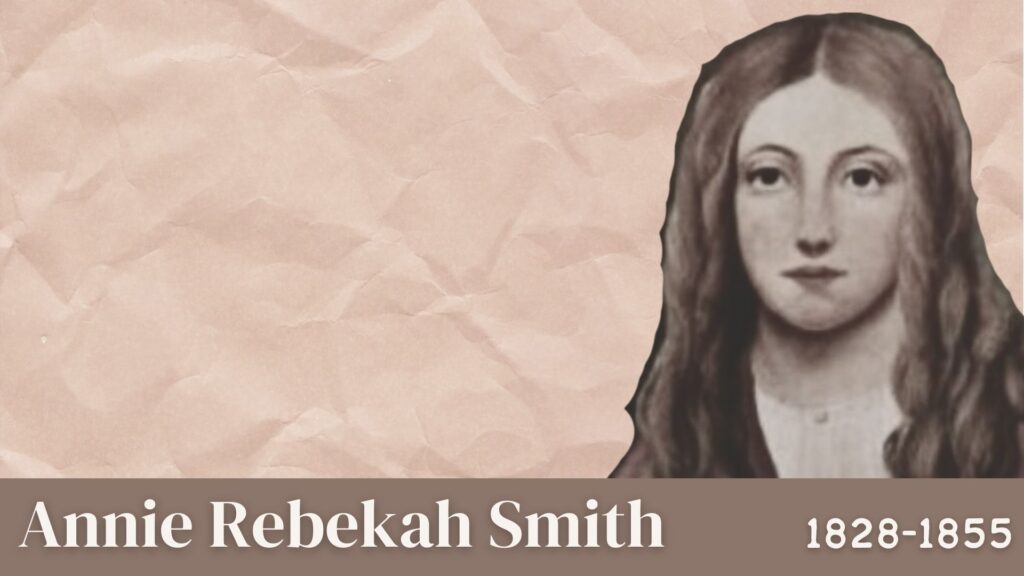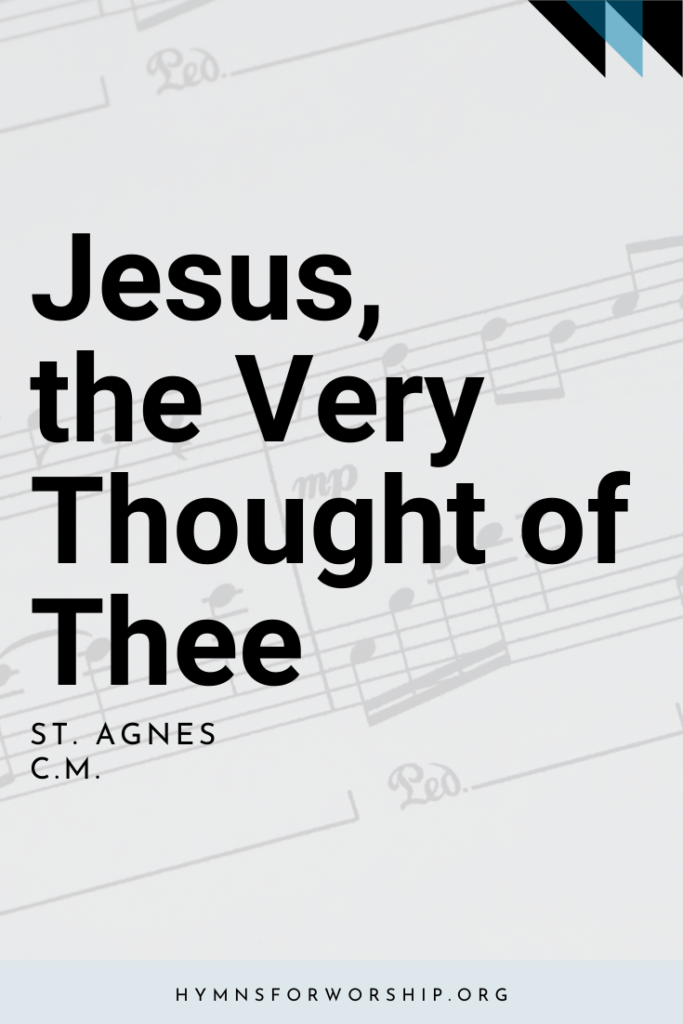JESUS CHRIST >> Life & Ministry
SDAH 149
Once in royal David’s city
Stood a lowly cattle shed,
Where a mother laid her Baby
In a manger for His bed;
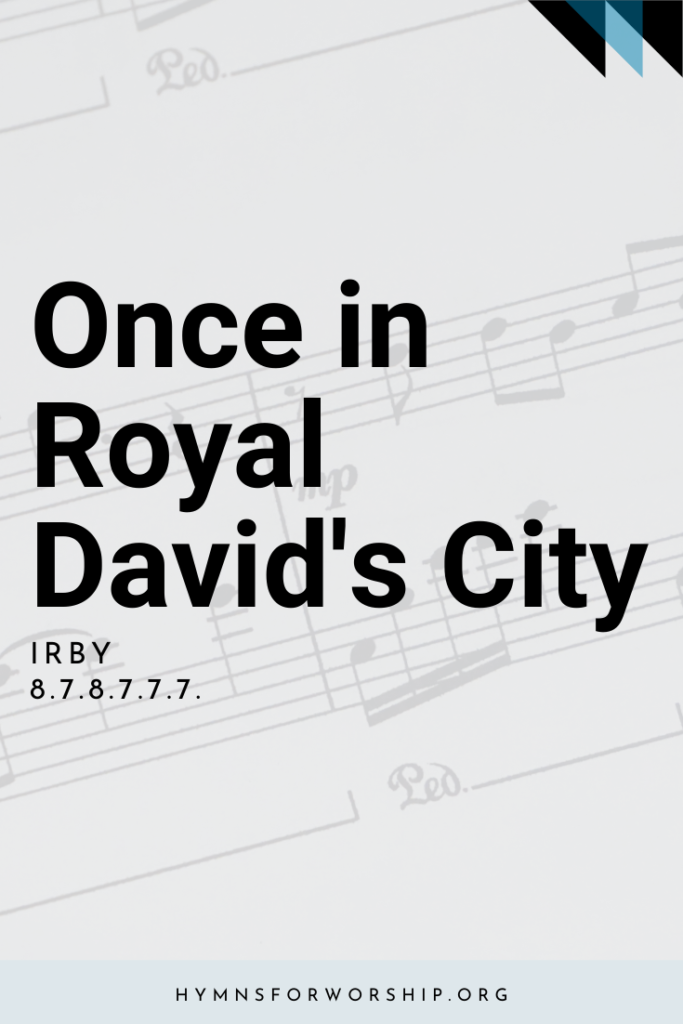

Text
1
Once in royal David’s city
Stood a lowly cattle shed,
Where a mother laid her Baby
In a manger for His bed;
Mary was that mother mild,
Jesus Christ her little Child.
2
He came down to earth from heaven,
Who is God and Lord of all,
And His shelter was a stable,
And His cradle was a stall;
With the poor, and mean, and lowly,
Lived on earth our Savior holy.
3
And through all His wondrous childhood
He would honor and obey,
Love and watch the lowly mother
In whose gentle arms He lay.
Christian children all must be
Mild, obedient, good as He.
4
And our eyes at last shall see Him,
Through His own redeeming love;
For that Child so dear and gentle
Is our Lord in heaven above;
And He leads His children on
To the place where He is gone.

Hymn Info
Biblical Reference
(a) Luke 2:7, 5 (c) Luke 2:51 (e) Matt 24:30
Author
Cecil Frances Alexander (1818-1895)
Year Published
1848
Hymn Tune
IRBY
Metrical Number
8.7.8.7.7.7.
Composer
Henry J. Gauntlett (1805-1876)
Year Composed
1845
Theme
LIFE & MINISTRY OF JESUS
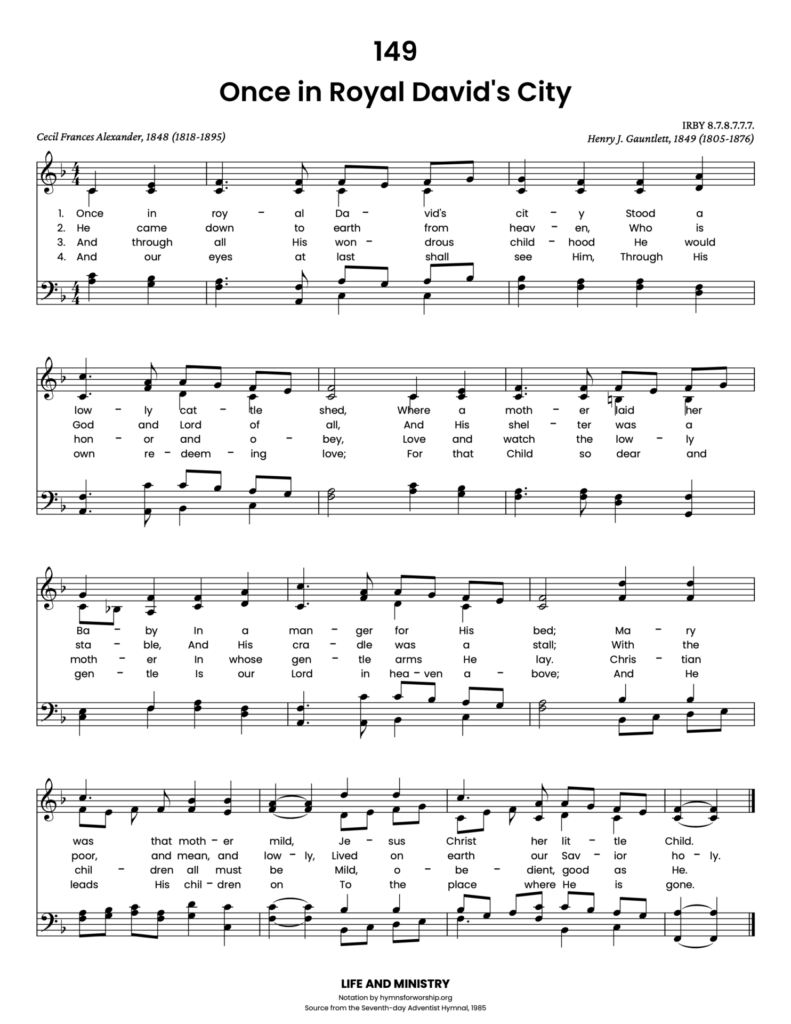
Get the hymn sheet in other keys here
Notes
Get to know the hymns a little deeper with the SDA Hymnal Companion. Use our song leader’s notes to engage your congregation in singing with understanding. Even better, involve kids in learning this hymn with our homeschooling materials.
Cecil Frances Alexander, née Humphreys (1818-1895; see SDAH 93), wrote this hymn based on the Apostles’ Creed in order to simplify it so that children could understand what they were reciting each Sunday. It appeared in her Hymns for Little Children of 1848 and amplifies article 3 of the creed, which, referring to the Lord Jesus Christ, says, “Which was conceived by the Holy Ghost, born of the Virgin Mary.” The scripture on which it is based is Luke 2:7, which states how Mary goes to “the city of David, which is called Bethlehem” (verse 4), and “she brought forth her firstborn son, and wrapped him in swaddling clothes, and laid him in a manger.”
IRBY was set first to these words in 1849 by Henry John Gauntlett in the pamphlet Christmas Carols, but as a melody only, with a simple piano accompaniment. He harmonized it in 1858 in Alexander’s Hymns for Little Children with the notable moving parts in the last two lines, and named the tune when it was included in Hymns Ancient and Modern in 1868. Lines 3 and 4 replicate the first two lines, but each of the four parts has an interesting part to sing. There are three places in England named Irby-Irby upon Humber, near Grimsby; Irby in the Marsh, near Skegness; and Irby in the Wirral,
near Birkenhead-but it is not known if any of these were connected with the composer.
Henry J. Gauntlett was born in Wellington, Shropshire, on July 9, 1805. At the early age of 9 he was organist at Olney in Buckinghamshire, where his father was the vicar. From age 14 to 20 he was even the choirmaster; among other things he conducted The Messiah during this period. His profession was law, and he practiced this from 1826 till 1842, but at the same time he was church organist successively in two London churches. Then he was appointed organist to the king of Hanover and was able to devote all his time to music. He was awarded the degree of D.Mus. (Lambeth) by the archbishop of Canterbury in 1843, and had the privilege of being organist for the first performance of Mendelssohn’s Elijah in Birmingham, conducted by the composer. He was very interested in psalmody and in Gregorian music, and compiled a book on each topic. He is credited with having composed about 10,000 hymn tunes as well as organ music, songs, and anthems. He died at Kensington, London, on February 21, 1876. Gauntlett also adapted tune SDAH 659, STUTTGART.

